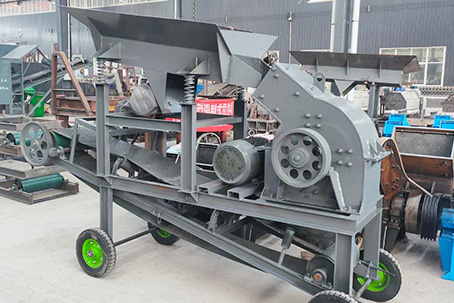


Rwanda, a landlocked country in East Africa known for its stunning landscapes and resilient spirit, is making significant strides in the mining sector. The nation's rich geological deposits include valuable minerals such as gold, cassiterite, wolframite, and columbite-tantalite. Among these, basalt—a type of igneous rock formed from the solidification of molten lava—holds particular importance in both construction and ore beneficiation processes. To harness the potential of basalt efficiently, Rwanda has turned to advanced granite crusher solutions, revolutionizing the way this volcanic stone is processed.
Understanding Basalt and Its Importance
Basalt is renowned for its durability, strength, and resistance to weathering, making it an ideal material for construction projects. Its applications range from road bases and aggregates to high-quality concrete production. In ore beneficiation, basalt often contains valuable minerals that need to be extracted and refined. Therefore, effective crushing and processing of basalt are crucial for maximizing its economic value.
The Role of Granite Crushers in Basalt Processing
Granite crushers play a pivotal role in breaking down large basalt rocks into smaller, more manageable pieces. These machines utilize high-pressure mechanical forces to crush the tough basalt, ensuring uniformity and consistency in the final product. The primary types of granite crushers used in Rwanda include jaw crushers, cone crushers, and impact crushers:
Jaw Crushers
Jaw crushers are typically employed for primary crushing. They use two hard-faced jaws, one fixed and one moveable, to compress the basalt rock between them. This method is highly effective for reducing large rocks to smaller sizes, making it easier to handle and further process.
Cone Crushers
Cone crushers are ideal for secondary and tertiary crushing stages. They operate by squeezing the rock between a rotating cone and a stationary mantle. Cone crushers provide finer control over the size of the output, ensuring that the basalt particles meet specific requirements for subsequent processing or construction use.
Impact Crushers
Impact crushers use rapid hammering action to shatter the basalt rock into smaller fragments. They are particularly useful when the desired output needs to have a more cubic shape, which is beneficial for certain construction applications.
Benefits of Advanced Granite Crusher Solutions
Adopting advanced granite crusher solutions offers numerous advantages for Rwanda's mining and ore beneficiation industries:

1. Increased Efficiency: Modern granite crushers can process larger volumes of basalt more quickly, reducing downtime and increasing overall productivity.
2. Enhanced Product Quality: Precision engineering ensures that the crushed basalt meets stringent quality standards, vital for both construction and ore processing applications.
3. Cost Savings: Efficient crushing reduces wear and tear on equipment, lowering maintenance costs and extending the lifespan of machinery.
4. Environmental Sustainability: Advanced crushers are designed to minimize dust and noise pollution, contributing to a safer and more sustainable working environment.
Case Study: Rwanda's Mining Sector Transformation
In recent years, Rwanda has witnessed a transformation in its mining sector, driven by investments in state-of-the-art granite crusher technology. One notable example is the Kigali region, where a new basalt quarry has been established. By integrating advanced crushing solutions, the facility has significantly increased its output capacity while maintaining high standards of environmental compliance.
The quarry employs a combination of jaw and cone crushers, enabling it to process thousands of tons of basalt per day. The resulting aggregate is used in various infrastructure projects across Rwanda, including roads, bridges, and buildings. Additionally, the finely crushed basalt is subjected to further beneficiation processes to extract valuable minerals, adding another layer of economic benefit.
Challenges and Future Prospects
Despite the progress made, Rwanda's granite crusher industry faces several challenges. These include the high initial cost of advanced machinery, the need for skilled operators, and ongoing maintenance requirements. However, with continued investments in technology and training programs, these hurdles can be overcome.
Looking ahead, Rwanda aims to further enhance its mining sector by embracing automation and digitalization. Smart sensors and real-time monitoring systems can optimize crusher performance, predict maintenance needs, and ensure consistent product quality. Moreover, collaborations with international experts and companies will facilitate knowledge transfer and innovation, driving the nation's mining industry towards greater heights.
Conclusion
Rwanda's adoption of advanced granite crusher solutions for basalt processing marks a significant milestone in its journey towards industrial growth and development. By leveraging cutting-edge technology, the country is not only improving the efficiency and quality of its mining operations but also contributing to sustainable development goals. As Rwanda continues to innovate and invest in its mining sector, the future holds promising prospects for both economic prosperity and environmental stewardship.